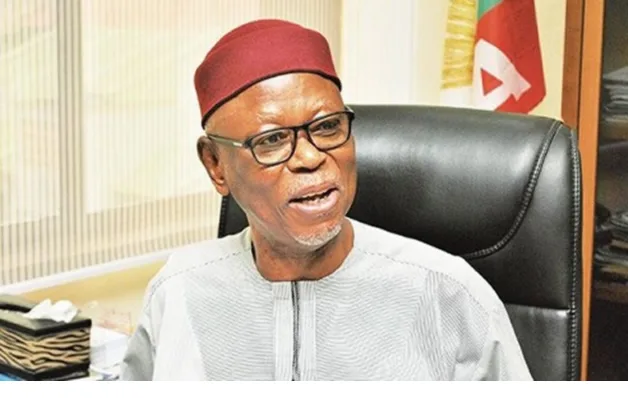A former National Chairman of the All Progressives Congress (APC), and a former governor of Edo State, Chief John Odigie-Oyegun, has opened up on how his refusal to compromise as Permanent Secretary in the Federal Civil Service during the military regime led to his early retirement at the age of 48 years.
Odigie-Oyegun made this yesterday in his closing remarks at the formal commissioning of the John Odigie-Oyegun Public Service Academy, an institution named after him by the Edo State government to celebrate his 84th birthday and 19 years of meritorious service as a civil servant at the federal level.
Odigie-Oyegun said, ‘I was bold to tell the military what I wanted as a Permanent Secretary to ensure I don’t get into trouble. The Ibrahim Babangida regime then posted me to various ministries, including the Ministry of Commerce and Industry.
Read Also: We Are Willing To Receive Kwankwaso Into APC – Ganduje
‘The first thing the military did was send me a list of people to be retired but I am not the one to retire them but write to the Public Service Commission with reasons. I sat with my commissioner, an Armond Commander in the military, who could not tell me what these people did but said the instructions were from the Supreme Headquarters.’
‘Three military officers were appointed by the IBB regime to supervise the different import licences and I was told that I would be the one to sign all the import licences but I politely refused. I told them I couldn’t do that because I was not responsible for it and where I come from, we don’t behave this way.
‘Immediately after that conversation, I knew I would be sacked and I went to report myself to the Head of Service of the Federation at that time. I went to my office, and instructed my secretary to prepare a resignation letter, so I could retire before the military could sack me. We all have a decision to make, it requires courage to take major steps to maintain integrity, defend what you stand for.’
The celebrant, who commended the governor for his developmental strides in the state and transformation of the state civil/public service, called on civil servants in the state to be committed, dedicated and upright in their service to the state as they would get their reward for it.
